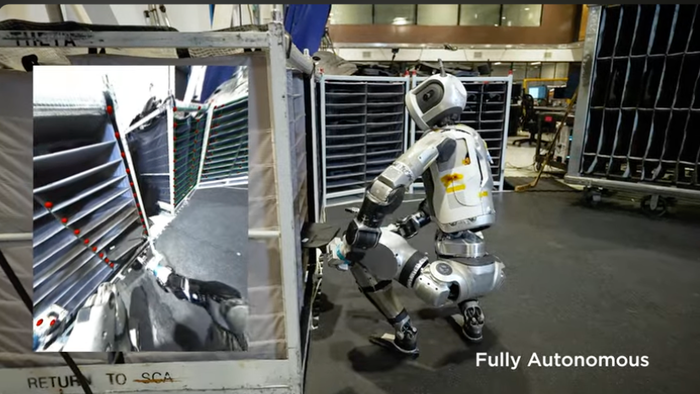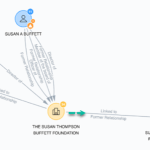Less than a day after Tesla CEO Elon Musk made bold claims at the Future Investment Initiative Conference in Saudi Arabia, touting big AI growth in the coming years, which is only suggestive of powerful tailwinds for his Optimus robot, Boston Dynamics—once the leader in viral humanoid robot videos—published a clip on YouTube on Wednesday morning showcasing its robot performing typical warehouse tasks usually carried out by workers in Amazon distribution centers.
Maybe a bit of jealousy is unfolding between Boston Dynamics and Musk’s Optimus robot, which has received a lot of attention in October – from the “We, Robot” event on October 10 to Musk’s comment at the event in Saudi Arabia on Tuesday:
“I think by 2040, probably there are more humanoid robots than there are people. Every country will have an AI or multiple AIs, and there will be a lot of robots, way more robots than people.”
Back to the We, Robot event, where Musk said Optimus will cost less than $30,000 and forecasted that the humanoid robot will be the company’s most popular product in the years ahead…
NEW: Elon Musk introduces an army of Optimus robots, says people will be able to buy them to complete tasks.
Epic.
Musk then said attendees could walk up to the Optimus robots who would do things like serve drinks.
“At scale, you should be able to buy an Optimus robot for… pic.twitter.com/zsGF4zzhaR
— Collin Rugg (@CollinRugg) October 11, 2024
Maybe all this attention on Optimus provoked Boston Dynamics to release a video of its bipedal humanoid robot, Atlas.
Here’s more from Boston Dynamics:
Atlas is autonomously moving engine covers between supplier containers and a mobile sequencing dolly. The robot receives as input a list of bin locations to move parts between.
Atlas uses a machine learning (ML) vision model to detect and localize the environment fixtures and individual bins [0:36]. The robot uses a specialized grasping policy and continuously estimates the state of manipulated objects to achieve the task.
There are no prescribed or teleoperated movements; all motions are generated autonomously online. The robot is able to detect and react to changes in the environment (e.g., moving fixtures) and action failures (e.g., failure to insert the cover, tripping, environment collisions [1:24]) using a combination of vision, force, and proprioceptive sensors.
Suppose robots and AI are forecasted to lead to millions of job losses in the years ahead. Then why did Democrats facilitate the greatest migrant invasion this nation has ever seen with low-skilled, unvetted illegal aliens when many of those jobs are likely to be automated away? Ah, yes, it’s all about the votes.
Loading…











